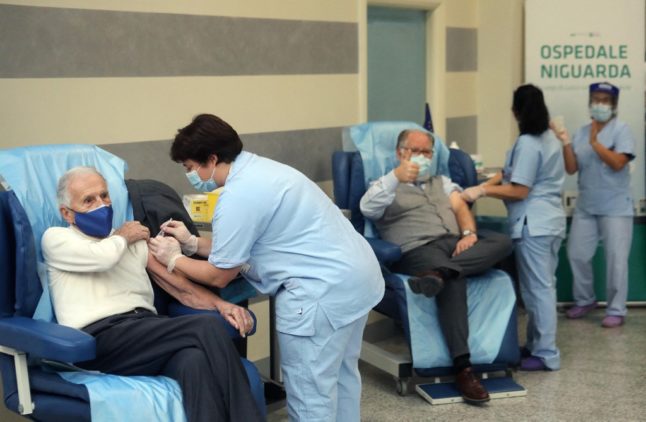READ ALSO:
Since Saturday, 10 towns have been under lockdown in Lombardy and one in Veneto – a drastic measure taken to halt the spread of the disease.
However outside of this small area, there are no travel restrictions in place in Italy.
Italian government ministers have stressed that Italy remains safe to visit, as most of the country remains unaffected by the virus.
Around five percent end up in a critical condition.



 Please whitelist us to continue reading.
Please whitelist us to continue reading.
Member comments